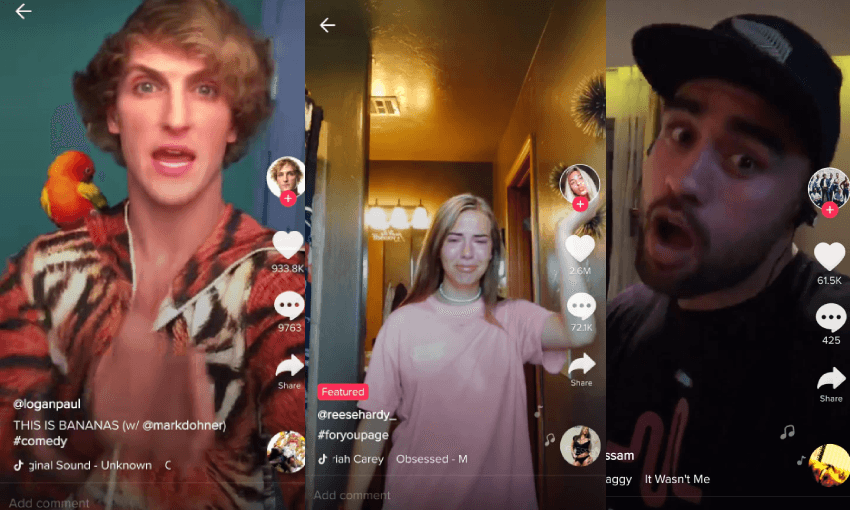The Gen Z-targeted mobile application TikTok is finally being noticed by adults. But what is it? Here’s a quick explainer.
What is TikTok?
TikTok was the most-downloaded app in the Apple store last year. It’s a mish-mash of the deceased Musical.ly and Vine, with over 500 million active users.
The app allows you to film segments and stitch them together with sound and visual effects. It’s used for lip-syncing, dancing, and cracking jokes that, honestly, I don’t get.
New Zealand’s most-viewed TikTok (by creator @jimsmowing123) currently sits at almost two million “likes,” and depicts highschoolers jumping over a muddy creek.
Is TikTok in New Zealand?
We’re always late to the app party, but we’ve finally arrived at this one. Currently, TikTok is the number one app in the Apple store’s entertainment section. It’s transforming youth culture by evolving the concept of the “meme” once more – video killed the Imgur star!
The integration of every other app’s tools (stop-start filming, songs, filters, facetuning etc.) means it’s causing a Dada-ist resurgence in Gen Z. It’s absurd, it’s ironic and it’s anti-political. If you think your kids’ jokes don’t make sense, that’s because they don’t. You’re not missing a component, just the mindset. Youth these days are bizarre, wholesome, and relentlessly meme-ing.
The app grew out of Musical.ly, which was targeted at preteens. This is why the main audience still skews young. It got past app-savvy parents by advertising itself as a creative platform rather than social media. Yes, TikTok today is a creative platform with some pretty crack up content, but as with any app you or your child uses, remember the second law of webdynamics: information cannot be destroyed, only transformed. Your kids’ faces are in someone else’s server.
This is particularly a concern for some because not all content on TikTok is child-friendly. India temporarily banned the app for broadcasting violent content, and young users have reported predatory behaviour from older users – but they mostly have to self-police. And with apps from competing governments and companies all on the same phone, they can.
So why is my child yelling “OK boomer” at me?
“OK boomer” is just the latest meme on TikTok. It’s both a dismissal and a rallying cry. Gen Zers will use the phrase in response to anything said by an adult. I got called a boomer the other day and I’m only 27. It’s a classic bit of teenage rebellion, but it also speaks to the generational cruelty boomers have inflicted on today’s kids. The Amazon is burning, climate legislation is toothless, homophobes and racists run wild with power, and rent – let alone owning actual property – is unaffordable. Go to school, think of your future… OK boomer – what future?
Why is TikTok in the news?
The app was developed by Chinese tech company ByteDance, which was valued at $79 billion last year. There were rumours the company was about to go public and was looking at an initial release in Hong Kong. They’ve denied this and said they have no plans to go public in Hong Kong in Q1. This could be interpreted as “we might do it in Q2”.
ByteDance is also working hard to ease political concerns over the use of TikTok. It’s alleged the app has censored content based around the Hong Kong protests and human rights breaches in Xinjiang. Earlier this year, it also settled allegations in the US that it illegally collected personal information from children.
Why is it important?
The US powers-that-be view TikTok as a threat. They see it as a way of disseminating information that isn’t owned by Apple or Amazon, so the government can’t control it. It uses a smart piece of technology – the AI that runs its algorithms and homepages is loved by users and advertisers alike.
The app is a player in the technological cold war playing out between the US and China, as well as a potential political tool. In a letter to the director of National Intelligence, two senators stated: “TikTok’s terms of service and privacy policies describe how it collects data from its users and their devices, including user content and communications, IP address, location-related data, device identifiers, cookies, metadata, and other sensitive personal information … With over 110 million downloads in the U.S. alone, TikTok is a potential counterintelligence threat we cannot ignore.”

